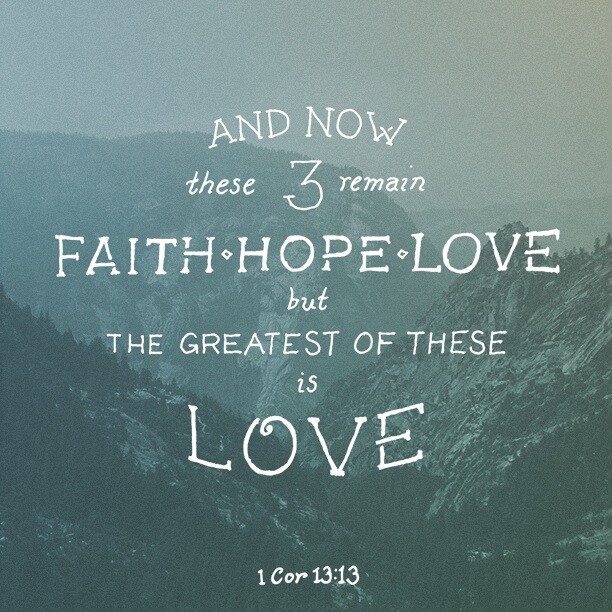
Love Is the Only Way That Lasts
Context:
The portion from 1 Corinthians 12:31–13:9 addresses a spiritually gifted but relationally fractured church in Corinth. After highlighting various spiritual gifts, Paul shifts dramatically to what matters most—love. He doesn’t diminish the gifts, but he reorders priorities: without love, all ministry efforts are worthless. Love becomes the non-negotiable foundation for every believer’s life.
Red (Sin to Avoid):
-
“Didn’t love others, I would only be a noisy gong or a clanging cymbal” – Doing great things without love creates spiritual noise, not fruit.
-
“Didn’t love others, I would be nothing” – Knowledge and faith, without love, lack eternal value.
-
“I would have gained nothing” – Even the most sacrificial acts are empty without genuine love.
-
“It is not irritable” and “it keeps no record of being wronged” – Bitterness and emotional outbursts fracture relationships.
-
“Does not rejoice about injustice” – Taking pleasure in others’ failures or wrongs reveals a heart out of alignment with God.
Yellow (Promise to Claim):
-
“Love never gives up, never loses faith, is always hopeful, and endures through every circumstance” – Love has staying power, no matter the situation.
-
“Love will last forever” – Unlike spiritual gifts, love doesn’t expire. It’s a divine constant.
Green (Example to Follow):
-
“Love is patient and kind” – These two traits lead the list for a reason: they are active demonstrations of Christlike love.
Orange (Command to Obey):
-
“You should earnestly desire the most helpful gifts” – We are not to chase flashy expressions but pursue what genuinely builds others.
Purple (Instruction):
-
“Prophecy and speaking in unknown languages and special knowledge will become useless” – Instruction to hold loosely what is temporary, and cling to what is eternal.
Practical Keywords :
-
Relationships Over Gifts
-
Unshakable Love
-
Let Go of Grudges
-
Lasting Character
-
Choose Kindness
-
Spirit-led Endurance
Simple One-Line Story:
A missionary once lost his voice for a year, but won hearts by simply living out love in silence—because love doesn’t need a mic.
Summary:
In this passage, Paul teaches us that love isn’t an accessory to spiritual life—it’s the very essence. The greatest gifts are meaningless if not rooted in love. Sinful attitudes like pride, irritability, or score-keeping erode the beauty of love. But love that’s patient, hopeful, enduring, and kind reflects heaven’s nature. Love is the only thing that never fails—and the only thing that will last.
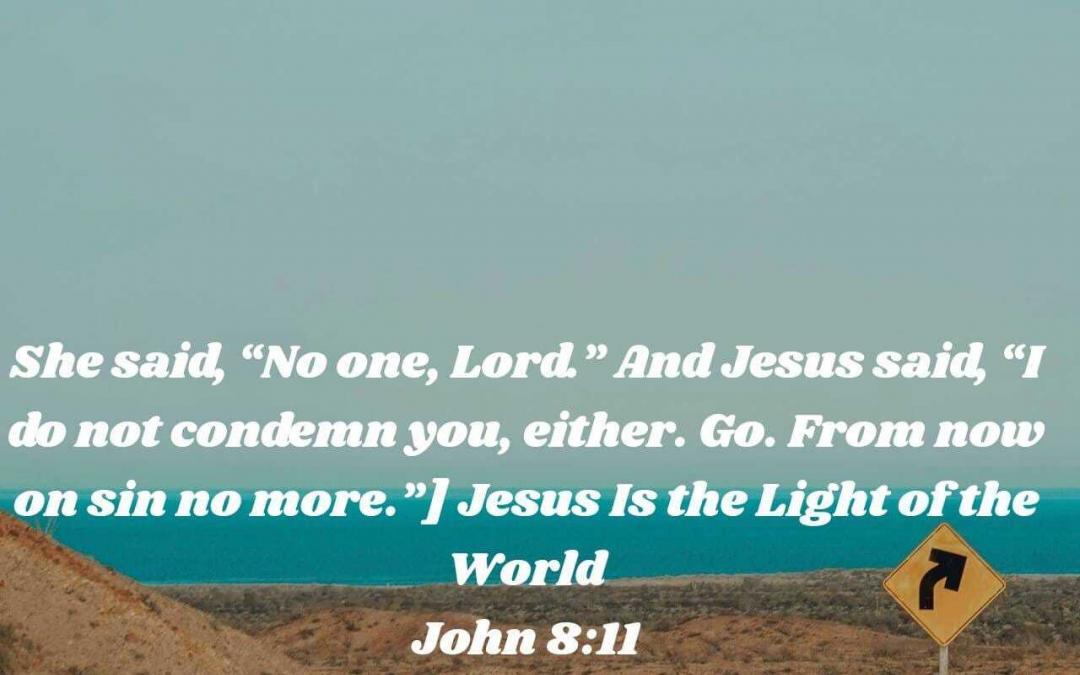
Walking in the Light: A Guide to Discernment and Devotion
Portion: John 8:11–20
Context:
During the Feast of Tabernacles—a celebration of God’s guidance and provision—Jesus makes a bold declaration in the temple: He is the Light of the world. Confronted by skeptical Pharisees, Jesus unveils truths about His identity, divine mission, and the necessity of spiritual insight to truly know God.
Structured Breakdown:
Promise to Claim:
“I am the Light of the world. If you follow Me, you won’t have to walk in darkness, because you will have the light that leads to life.” (v.12)
Jesus promises direction, clarity, and spiritual vitality to all who follow Him. His light is not partial—it fully illuminates our path when we choose to walk with Him.
Command to Obey:
“Go and sin no more.” (v.11)
Jesus speaks not with condemnation, but with a call to transformation. Sin is to be left behind. Holiness isn’t optional; it’s a loving expectation from a Savior who restores.
Example to Follow:
“The Father who sent Me is with Me.” (v.16)
Jesus lived in constant awareness of God’s presence. In our daily challenges and decisions, we are called to cultivate that same God-consciousness, depending on the Father’s guidance.
Sin to Avoid:
“Such testimony is not valid.” (v.13)
“You judge Me by human standards.” (v.15)
The Pharisees dismissed Jesus based on outward appearances and logic alone. We’re cautioned against this limited lens—spiritual matters require spiritual discernment.
Instructions to Embrace:
“Since you don’t know who I am, you don’t know who My Father is.” (v.19)
“I know where I came from and where I am going…” (v.14)
Jesus offers a key truth: to know Him is to know God. He also reminds us of the power in knowing our identity and purpose in the Father.
Practical Keywords:
-
Discernment
-
Identity
-
Judgment
-
Presence
-
Light-walking
-
Clarity
-
Fellowship
Application:
-
Live with purpose – Know your God-given identity and direction.
-
Avoid superficial judgment – Seek the Spirit’s perspective before drawing conclusions.
-
Pursue God’s presence – Let God’s nearness shape your decisions.
-
Trust in Jesus’ guidance – Walk in the light He offers for every step of life.
-
Obey in holiness – Respond to Christ’s grace by turning from sin.
Illustration (One-line story):
A hiker trapped in a dark forest saw a distant campfire and followed it—step by step—until he found safety. Jesus is that light in our darkness; follow Him all the way home.
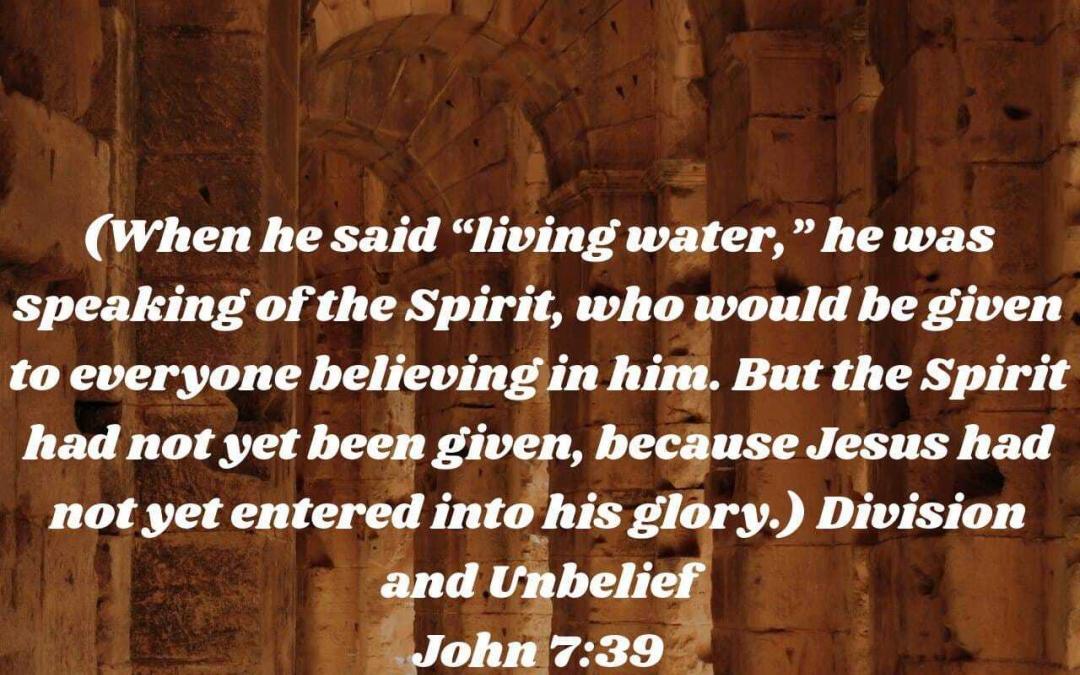
From Thirst to Overflow: Living the Spirit-Filled Life
Portion: John 7:37–39 (Refer to attachment)
Context (Concise):
During the Feast of Tabernacles—a celebration of God’s provision—Jesus stands and boldly invites the crowd to receive something far greater than ritual: the life-giving presence of the Holy Spirit. His words shift the focus from tradition to transformation, from ceremony to personal encounter.
1. Thirst is the Starting Point
“If anyone is thirsty, let him come to Me and drink…”
Spiritual hunger is not a weakness; it’s the doorway to transformation. Jesus doesn’t call the perfect—He calls the parched. The condition is simple: recognize your need. Many today are dehydrated by performance, distraction, or emotional exhaustion. Jesus says, “Come to Me.” Your thirst qualifies you.
2. Believing Leads to Receiving
“Anyone who believes in Me may come and drink…”
Faith is not just intellectual agreement—it’s active trust. Coming and drinking represent surrender, dependence, and ongoing relationship. This is not a one-time sip but a lifestyle of drawing from Christ. If we’re not drinking daily, we’ll be dry no matter how religious we appear.
3. The Result is Overflow
“Rivers of living water will flow from within…”
The Spirit doesn’t just fill you—He flows through you. You’re not a reservoir but a riverbed. The Spirit-filled life produces fruit, influence, and impact. When Jesus is your source, others around you will taste the life of God from the overflow of yours. Your reactions, your words, your presence—everything becomes a stream of grace.
4. The Spirit Is the Promise for Every Believer
“He was speaking of the Spirit, who would be given to everyone believing in Him…”
The Holy Spirit is not a bonus for elite Christians. He is the promised gift for every believer. He brings guidance, comfort, boldness, and power. Life without the Spirit is dry, pressured, and self-driven. Life with the Spirit is empowered, fruitful, and joyfully surrendered.
5. Ignoring the Invitation Leaves Us Empty
While this passage is filled with promise, the warning is quiet but clear—those who don’t come, don’t receive. Spiritual thirst without action leads to spiritual stagnation. Don’t let religious routine, shame, or pride stop you from receiving what Jesus freely offers.
Practical Keywords:
Thirst. Come. Believe. Drink. Overflow. Filled. Fruitful. Spirit-Led. Empowered. Surrender.
Closing Thought:
You were not created to run dry or live small. You were meant to carry rivers. Don’t just survive—overflow. Come to Jesus daily, and let His Spirit turn your thirst into a testimony. The world doesn’t need more noise—it needs people who flow with living water.
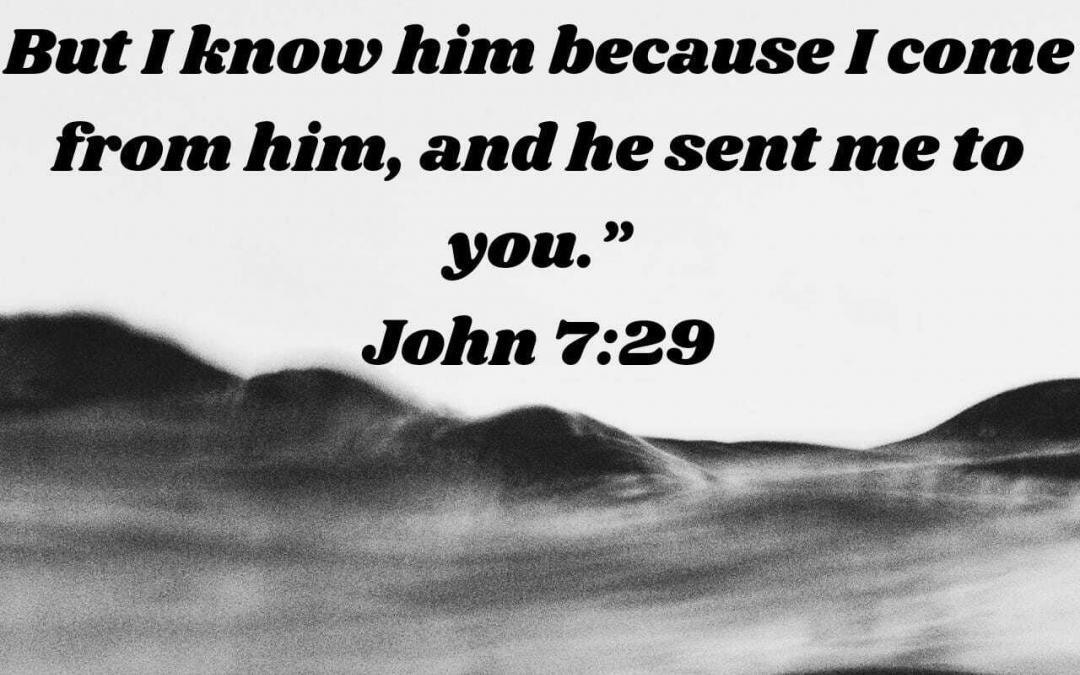
When You Can’t Find Jesus
Portion: John 7:25–36 (Refer to attachment)
Context (Concise):
In John 7, Jesus is in Jerusalem during the Feast of Tabernacles. The crowds are divided about Him—some believe, some doubt, some plot to kill. Jesus boldly teaches in the temple, exposing both the confusion and the hostility around Him. In verses 25–36, tension rises as Jesus speaks about His divine origin and warns that soon, they would seek Him but not find Him.
Sin to Avoid:
The people relied on surface-level understanding (“we know where this man comes from”) and rejected deeper discernment. Their overconfidence in their own knowledge blinded them from recognizing the Messiah standing before them. Today, depending solely on worldly knowledge without seeking spiritual truth can cause us to miss what God is doing right in front of us.
🪞Quick story: A man kept checking the weather app instead of looking outside—he got soaked because he trusted the wrong source.
Promise to Claim:
Jesus promises that His time was determined by God, not by human threats (“no one laid a hand on Him because His time had not yet come”). We can rest knowing that God’s timing governs our lives, not human opposition. His plans for us cannot be rushed or thwarted.
Example to Follow:
Jesus demonstrated complete boldness and calm in the face of danger. Even while leaders plotted against Him, He continued to teach publicly and stay obedient to His mission. Likewise, we are called to live courageously, knowing God’s hand is over us even when circumstances feel hostile.
Command to Obey:
Jesus challenged the people to move beyond shallow judgment. Earlier in the chapter, He said, “Look beneath the surface so you can judge correctly.” We must not react to appearances but seek God’s perspective in every situation, discerning His will instead of assuming based on outward facts.
Instruction:
Jesus points toward a sobering reality: a day may come when people will search for Him and not find Him. This teaches us the urgency of seeking Christ now while He may be found. Delaying our response to His call risks missing the opportunity to know Him personally.
Practical Keywords :
Discern Deeply. Trust God’s Timing. Boldly Stand. Urgently Seek Jesus.
Closing Thought:
Many knew about Jesus, but few truly knew Him. It’s still true today: familiarity with religious ideas doesn’t equal relationship. Seek Jesus now, listen deeply, trust His timing, and walk boldly—because when the opportunity passes, no amount of searching will replace today’s simple obedience.
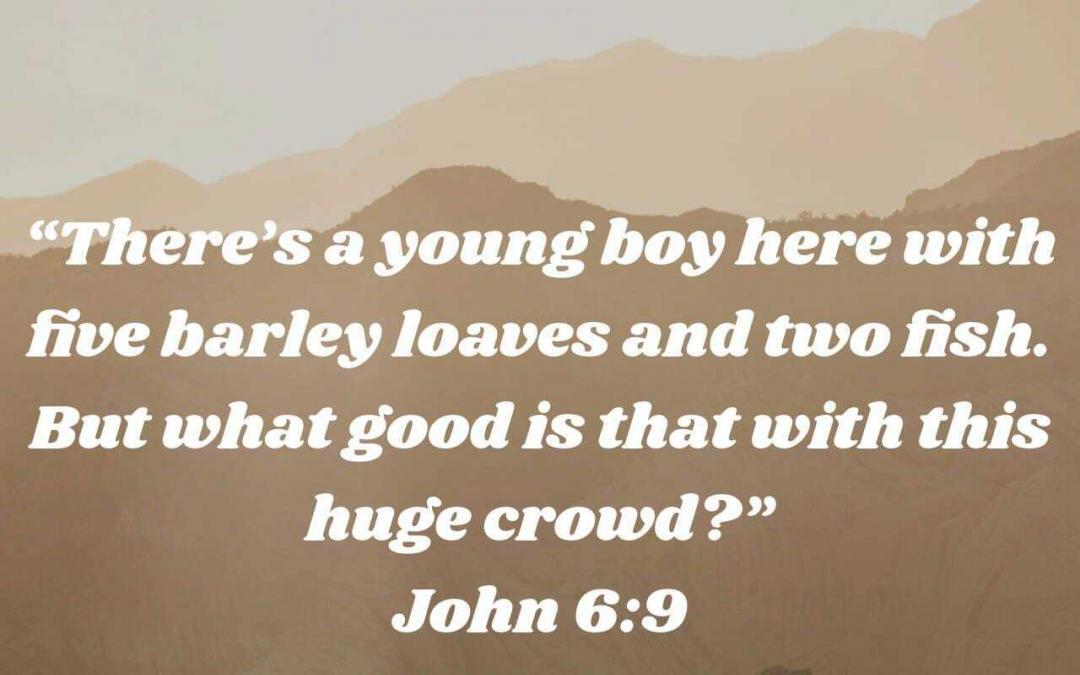
Faith Beyond the Loaves
Concise Context
This portion captures the miraculous feeding of five thousand through Jesus’ multiplication of a boy’s lunch. The event reveals much more than divine provision—it points to the identity of Christ, the importance of trust, and the call to stewardship and spiritual perception.
Major Points
-
Jesus Already Has a Plan (v.6)
-
Jesus tested Philip not out of doubt but to draw out faith.
-
Key insight: Jesus never acts from confusion. Even in chaos, He already knows what He will do.
-
-
Limited Resources Are Not a Limit for God (v.9–11)
-
A small offering became more than enough when placed in Jesus’ hands.
-
What we call “not enough,” God calls “ready to multiply.”
-
-
God’s Provision Satisfies Fully (v.11)
-
“They all ate as much as they wanted.” The Lord doesn’t do halfway blessings. He satisfies completely.
-
-
Stewardship Follows Miracles (v.12)
-
Gathering the leftovers teaches us to value every blessing.
-
Wastefulness has no place even in abundance.
-
-
Spiritual Discernment Is Crucial (v.14)
-
The people recognized the miracle, but their intention to crown Jesus for the wrong reasons shows the need for right understanding of God’s work.
-
Practical Lessons
-
Trust in God’s Timing: Even when answers aren’t clear, know that God already has a solution in place.
-
Offer What You Have: The boy’s simple lunch fed thousands. Your little can make a big difference in God’s hands.
-
Practice Gratitude and Stewardship: Don’t waste what God has given. Manage every resource—physical or spiritual—with care.
-
Look Beyond the Physical: Don’t just chase miracles. Seek the Miracle Worker and understand His purpose.
-
Grow in Discernment: Not every crowd response is spiritual. Learn to discern God’s voice over popular opinion.
Illustrative Story:
A teacher asked each student to bring a single candle to light a dark hall. One candle barely made a difference—but when every student lit theirs, the room glowed. Likewise, one faithful act, when joined with others, lights the world.
Takeaway:
You may feel your contribution is small. But when surrendered to Christ, it becomes the seed of a miracle. Trust His plan, obey His instructions, and recognize His hand in both the provision and the leftovers.

